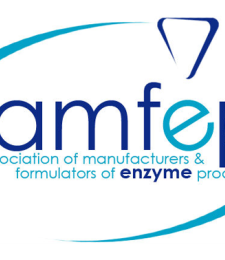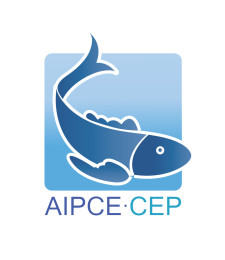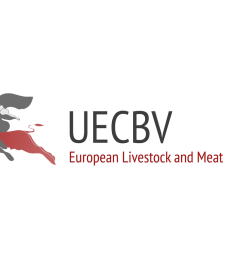Pledges
AMFEP (2021)
Pledges

Publishing organisations:
Editorial team
Relevant countries:
Belgium
Organisation types:
Industry Associations and Chambers of Commerce
Next progression check date:
The Association of Manufacturers and Formulators of Enzyme Products (AMFEP) is an EU-based association created in 1977 and consisting of 29 members, representing over 90% of the European and over 80% of the world enzyme market. AMFEP serves as a hub for information exchange and dialogue between enzymes producers and formulators, industry organisations, the scientific community and policy-makers and promotes co-operation on regulatory and safety aspects of enzymes.
Editorial team
Topics
Belgium
Industry Associations and Chambers of Commerce
-
CoC aspirational objectives
-
-
1. Healthy, balanced and sustainable diets for all European consumers
-
2. Prevention and reduction of food loss and waste
-
3. A climate - neutral food chain in Europe by 2050
-
4. An optimised circular and resource-efficient food chain in Europe
-
5. Sustained, inclusive and sustainable economic growth, employment and decent work for all
-
6. Sustainable value creation in the European food supply chain through partnership
-
7. Sustainable sourcing in food supply chains
-
Share
Members of AMFEP produce and sell enzyme products for use in food, feed and technical industries. Enzymes are used in a variety of industrial and professional applications such as food & beverage, animal nutrition, detergents and/or textile production. They support and accelerate a number of biochemical reactions that drive environmental efficiency across many diverse EU sectors, in small to large companies.
Commitments by aspirational objectives:
By signing the Code of Conduct, as an association signatory, AMFEP pledges to:
• endorse the aspirational objectives set out in this Code (where applicable);
• promote and disseminate this Code with(in) their constituency/ies;
• encourage their members to align their sustainability actions and/or business practices to the aspirational objectives and targets of the Code and invite them, voluntarily, to adhere to this Code, as appropriate;
• explore the possibility of developing sector-specific tools and resources in support of this Code;
• provide, on an annual basis, a report of their activities in support of this Code, which will be published on an open dedicated website;
• continue to engage in dialogue with other food chain/systems actors and EU and international policy-makers to forge (new) relationships, exchange good practices and discuss challenges encountered, learn from each other (studies, projects) and create better mutual understanding, and identify opportunities for collaboration and potential partnership.
Aspirational objective 1: Healthy, balanced, and sustainable diets for all European consumers, thereby contributing to:
1) Reversing malnutrition and diet-related noncommunicable diseases (NCDs) in the EU;
2) Reducing the environmental footprint of food consumption by 2030.
With the following aspirational targets:
a) Improved food consumption patterns in the EU;
b) A food environment that makes it easier to choose healthy and sustainable diets.
Aspirational objective 2: Prevention and reduction of food loss and waste (at the consumer level, within internal operations, and across value chains)
With the following aspirational target:
A 50% reduction of per capita food waste at the retail and consumer level by 2030 and reduced food losses along the food production and supply chains in the EU.
Aspirational objective 3: A climate-neutral food chain in Europe by 2050
With the following aspirational target:
Reducing net emissions from own operations, contributing to a 55% GHG emission reduction target in the EU food chain by 2030 (following a science-based approach).
Aspirational objective 4: An optimised circular and resource-efficient food chain in Europe
With the following aspirational targets:
a) Improved resource efficiency within own operations, contributing to sustainable, efficient use and management of energy and natural resources in operations by 2030;
b) Improved food and drink packaging sustainability, striving for all packaging towards circularity by 2030.
Aspirational objective 5: Sustained, inclusive, and sustainable economic growth, employment, and decent work for all
With the following aspirational targets:
a) Improved resilience and competitiveness of companies operating at any point along the food value chain by 2030;
b) Quality jobs, skilled workforce, and safe and inclusive workplaces for all.
Aspirational objective 6: Sustainable value creation in the European food supply chain through partnership
With the following aspirational targets:
a) Improved resilience and competitiveness of companies operating at any point along the food value chain by 2030;
b) Continued progress towards sustainable production, contributing to sustainable management, efficient use of natural resources by 2030, and improved animal welfare.
Aspirational objective 7: Sustainable sourcing in food supply chains
With the following aspirational targets:
a) Transformed commodity supply chains that do not contribute to deforestation, forest degradation, and destruction of natural habitat and which preserve and protect high-value ecosystems and biodiversity;
b) Improved social performance in (global) food supply chains.
Full detail of the pledge in the provided attachment.
Documents
Comments (0)
See also
-
4
AIPCE CEP (2021)
Publishing organisations: AIPCE CEP
Relevant countries: Belgium
Organisation types: Industry Associations and Chambers of Commerce
Next progression check date:
- Categories
- 2. Prevention and reduction of food loss and waste 3. A climate - neutral food chain in Europe by 2050 4. An optimised circular and resource-efficient food chain in Europe +3 more
-
2
UECBV (2021)
Publishing organisations: UECBV
Relevant countries: Belgium
Organisation types: Industry Associations and Chambers of Commerce
Next progression check date:
- Categories
- 2. Prevention and reduction of food loss and waste 3. A climate - neutral food chain in Europe by 2050 4. An optimised circular and resource-efficient food chain in Europe +3 more
-
3
European Association of Fish Producers Organisations (2021)
Publishing organisations: European Association of Fish Producers Organisations
Relevant countries: Belgium
Organisation types: Industry Associations and Chambers of Commerce
Next progression check date:
- Categories
- 2. Prevention and reduction of food loss and waste 3. A climate - neutral food chain in Europe by 2050 4. An optimised circular and resource-efficient food chain in Europe +3 more



